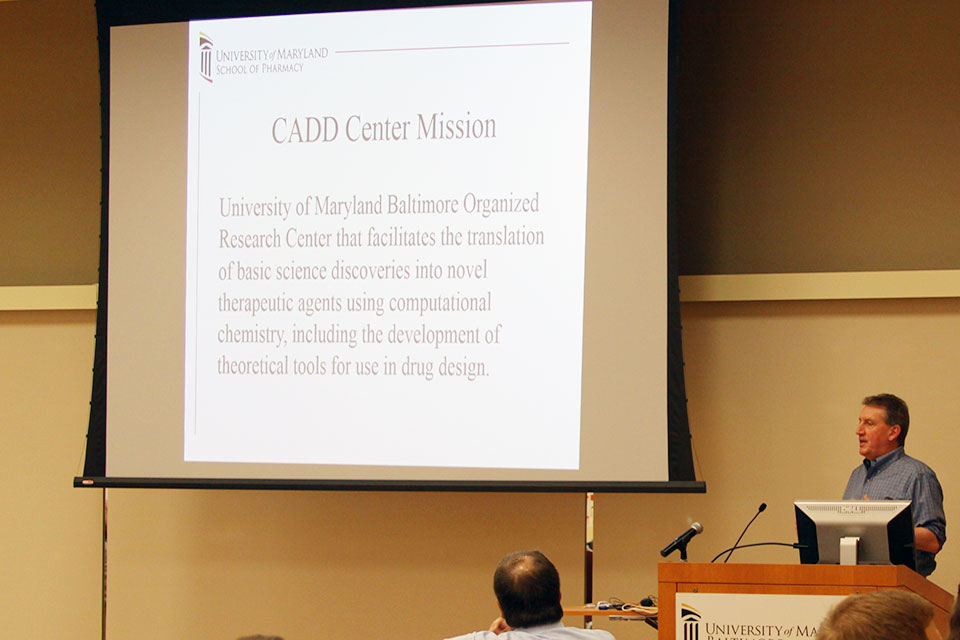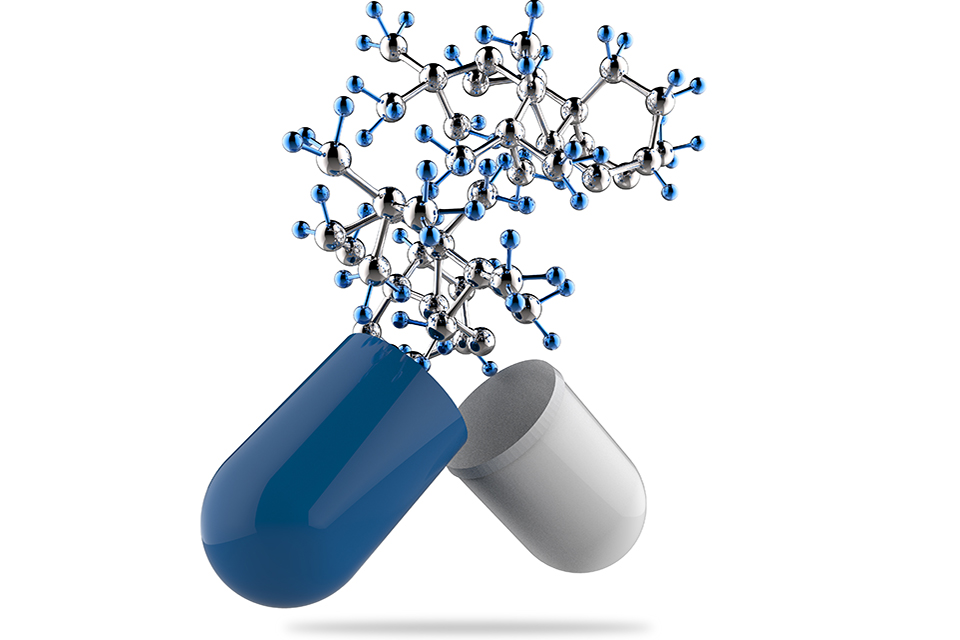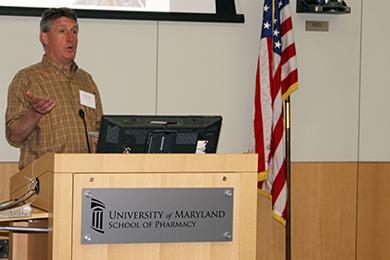Six Degrees of SOP; 2013 Nobel Prize Winner’s Connection to School
Nobel Prize for Chemistry awarded to world-renowned researcher and former mentor of Dr. Alexander MacKerell.
By Malissa Carroll
October 9, 2013
Most of us have heard about six degrees of separation; the theory that everyone and everything is connected by six or less steps. On Oct. 9, the University of Maryland School of Pharmacy proved this theory, showing just how closely connected it is to some of the world’s leading researchers, namely 2013 Nobel Prize for Chemistry winner Martin Karplus, PhD, the Theodore William Richards Professor of Chemistry emeritus at Harvard University and director of the Biophysical Chemistry Laboratory at the Universite de Strasbourg in France.
Karplus is a former mentor of Alexander MacKerell, PhD, the School of Pharmacy’s Grollman-Glick Professor of Pharmaceutical Sciences and director of the Computer-Aided Drug Design Center. MacKerell performed a post-doctoral fellowship in Karplus’ laboratory at Harvard University from 1988 to 1992, where he worked to develop and optimize empirical force fields — models that are employed to study proteins and nucleic acids using computers.
“I learned a lot during the time I spent in Dr. Karplus’ lab,” says MacKerell. “My experience in his lab provided me with a broad background in the field of computational theoretical chemistry, and showed me how to design the research and successfully implement the necessary calculations. It truly set the foundation for the development of my career.”
He adds, “I also had the opportunity to work with a lot of different people from many different backgrounds in that lab, which showed me the importance of being open to new concepts and interacting with colleagues in the field, including the importance of maintaining those relationships even after the project is complete.”
MacKerell, who continues to interact with Karplus through e-mail and in-person during the annual Chemistry at Harvard Molecular Mechanics (CHARMM) Developers Meeting, also worked with the world-class researcher and his team to apply the models that they developed to study the function of different proteins.
“By the time that I arrived in Dr. Karplus’ lab, he had already been actively engaged in the field for more than 20 years,” notes MacKerell. “His work helped computational theoretical chemistry evolve from a field that only looked at very small molecules to one that could tackle very large molecules, including proteins and nucleic acids.”
MacKerell notes that this advancement in the field was a “huge step forward” because it allowed computational theoretical chemists to study proteins and design chemicals that could bind to those proteins, ultimately leading to the design of new drugs that could treat a wide range of diseases.
According to MacKerell, Karplus and his collaborators’ contributions to computational theoretical chemistry are the reason that centers such as the School’s Computer-Aided Drug Design Center, which fosters collaborations among researchers at the University of Maryland, Baltimore and beyond to design research projects aimed at discovering novel chemical entities that have the potential to be developed into novel therapeutic agents, exist today. “Dr. Karplus set the foundation for a whole new field of science,” he says.
And it is a field of which MacKerell could not be happier to be a part.
“I was excited to hear that Dr. Karplus was selected as one of this year’s Nobel Prize recipients,” says MacKerell. “This recognition is not only a ‘feather in his cap’, it’s a feather in the caps of all of us who took part in creating a field that has proven to be very useful to modern drug design.”



